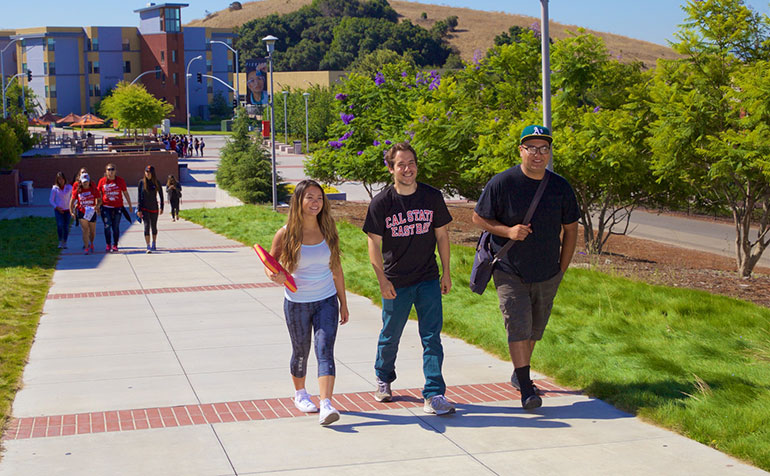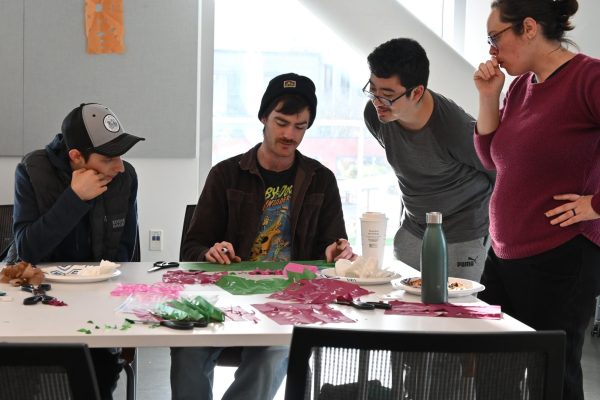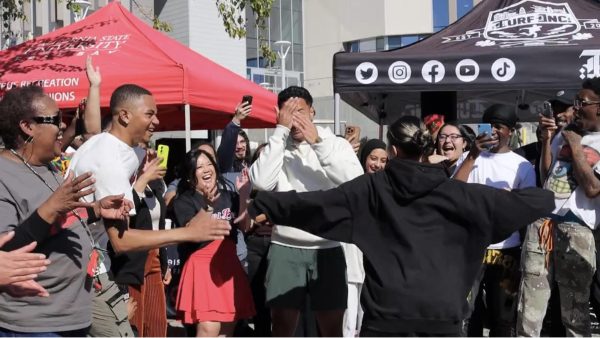University Guidance for New Faculty During COVID-19
It is no secret that COVID-19 has changed the delivery of instruction for CSU’s, and because of this, Cal State East Bay has now transitioned into virtual instruction for the Fall 2020 semester. For this academic term, new faculty members are forced to start their first year of teaching through their desktop, instead of in a classroom. Although new faculty will not have classroom experiences at Cal State East Bay, they will not be alone during this conversion.
Newly hired faculty go through a number of programs that were created by the Office of Faculty Development to help better prepare them for the term ahead. These programs are for both part-time and full-time faculty members.
According to www.csueastbay.edu/facultydevelopment, the following programs are available: Back To The Bay, Community Engagement, New Faculty Orientation, Faculty Learning Communities, Faculty In Residence, Faculty Mentoring Program, First Year Faculty Experience, Certificates, and Writing Communities/ Writing Challenges/ Retreats.
These programs are usually held in person, however, COVID-19 has drastically changed those plans. Fortunately, Dr. Jessica Weiss, Director of Faculty Development, is making sure that new faculty are prepared for these trying times.
“We offered a 7-day synchronous New Faculty Orientation in collaboration with Academic Affairs, the Online Campus, and the Diversity Office. We invited the new faculty to create a self-introduction on the Padlet app,” Weiss said in an email interview.
The new faculty profiles are online https://csueb.padlet.org/ik6582/b6i8geyupb6p4of3
New faculty were able to meet librarians as well as representatives of the following campus organizations: Academic Senate, Student Center Academic Achievement (SCAA), Community Engagement, and The Office of Research & Sponsored Programs.
“Since New Faculty Orientation, Faculty Development hosted a new faculty check-in/social after the first week and another is on the way,” She added that the First Year Faculty Experience Workshop will be offered through Zoom later in the semester.
Though faculty are supported during these difficult times, it does not mean they feel any better about the change.
“I hate not being able to engage with my students in a normal way. I feel like I’m blind in how students are reacting to the material much of the time,” Rosa Del Duca, a new part-time professor at Cal State East Bay, said in an email interview.
She noted that in a normal classroom, she’s able to see things such as raised hands, body language, and facial expressions from her students, which would usually make it easier for her to help.
Seung Paek, who previously worked at State University of New York, Oswego for three years, is now a new faculty member here at Cal State East Bay.
He mentioned that he was able to teach online last semester, therefore he is used to this change, however, he hopes to teach in person soon.
“One thing I miss from in-person instruction is interacting with students and getting them involved in their learning experience,” Paek said in an email interview.
Students, staff, and faculty now know what to expect for the rest of the 2020 semester. Although things were up in the air regarding how the university would proceed with instruction for spring semester, which begins January of 2021. CSU Chancellor Tim White made an early decision to keep classes largely online.
“I am announcing that the CSU will continue with this primarily virtual instructional approach for the academic term that begins in January 2021,” White said in an email sent September 10, 2020.
White stated that he made the decision several months in advance so that students have time to plan appropriately, amongst other things.
“A second reason for deciding now is that the CSU accrediting body-WASC- requires each campus to seek out authorization for courses offered in the virtual space with online and distance-learning technology,” White said.
The authorization was waived by the U.S. Department of Education for Fall 2020, however, that waiver expires in December 2020 and won’t be renewed. In order to secure virtual space for the next term which begins in 2021, a decision had to have been made in either September or October of this year.
By the look of things students, staff, especially faculty, will be dealing with online instruction for the entire 2020-21 academic year, but since faculty has and continues to receive support from Faculty Development, there should be minimal issues for the months ahead.
Contacts:
Jessica Weiss Faculty Development: jessica.weiss@csueastbay.edu
Professor Rosa Del Duca: Rosa.delduca@csueastbay.edu
Dr. Paek: seung.paek@csueastbay.edu
Email from CSU Chancellor White was sent to all students, staff, and faculty *













